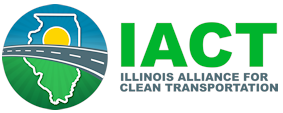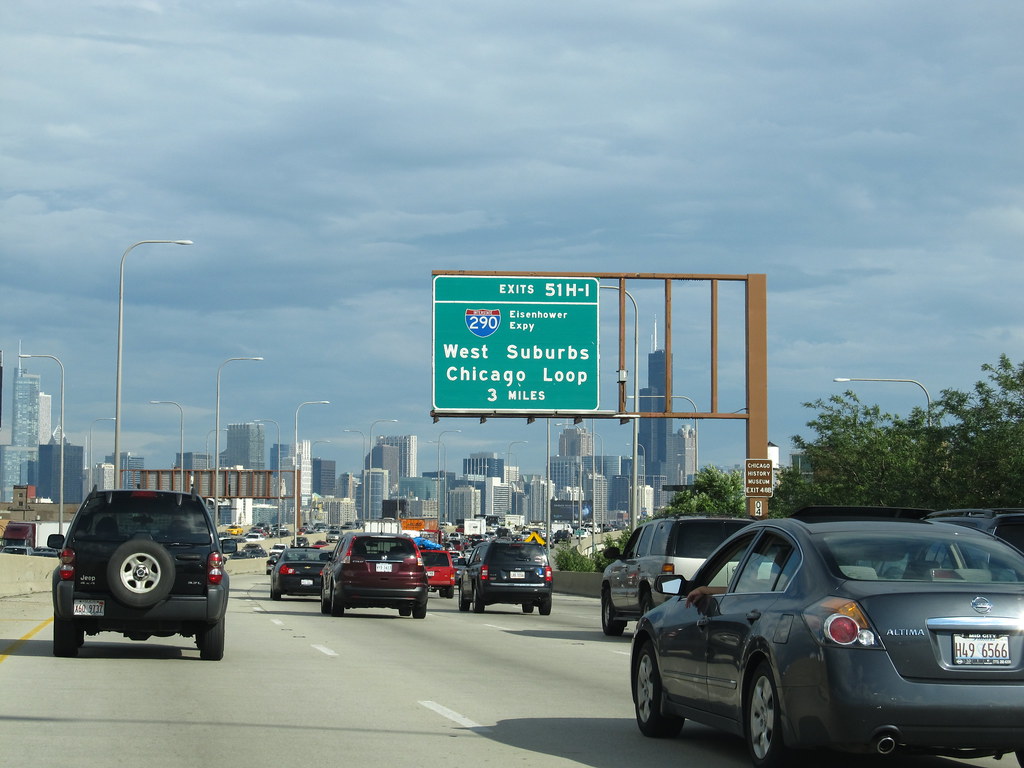CHICAGO, Oct. 26, 2020 – Officials from the U.S. Department of Transportation, GTI, ZEF Energy, and Ozinga Energy will emphasize the importance of the Michigan to Montana (M2M) Alternative Fuel Corridor Project during a webinar on Nov. 10 at 10 AM.
The M2M project supports an alternative fuel corridor that extends 1,500 miles along I-94 from Port Huron, Michigan to Billings, Montana. Led by Des Plaines, Illinois-based GTI, in partnership with Clean Cities coalitions in seven states, the goal of the project is to provide commercial fleets and individual drivers with more fueling sites to serve alternative fuel and electric vehicles. The M2M project is funded in part by an award from the U.S. Department of Energy.
Success stories of alternative fuel and charging stations along I-94, next steps for M2M, and how communities and builders can get involved in the project will be the focus of the webinar. The session is being hosted by Chicago Area Clean Cities, a nonprofit coalition focused on promoting clean transportation in the Chicago Region.
“Alternative fuels reduce harmful emissions from diesel and gasoline vehicles and reduce our country’s reliance on foreign oil,” said Ted Barnes, director, research and development for GTI. “By building out I-94 as a clean fuel corridor, more than 3,000 jobs will be created, and individuals along the route will save $2.5 billion in health-related costs due to improved air quality,” according to a study by Michigan State University’s Center for Economic Analysis.
“Air pollution from transportation causes health issues such as asthma attacks and contributes to premature death and lung cancer and many other health concerns,” Barnes added. “Increasing the use of clean vehicles plays an important role in improving air quality, and lung health, and also reduces greenhouse gas emissions that contribute to climate change. Our team is extremely pleased to be working on a program that is a catalyst for job creation and for clean air.”
Presenters during the webinar include:
- Mike Scarpino, transportation project engineer, U.S. Department of Transportation
- Ted Barnes, director of research & development, GTI
- Jim Goodman, vice president of customer development, ZEF Energy
- Jason van den Brink, operations officer, Ozinga Energy
Alternative fuel corridors are federally designated routes on major highways that allow for inter-city, regional, and national travel using lower-emission vehicles. The national network of alternative fuel corridors includes sections of nearly 180 heavily traveled interstates and highways in nearly all 50 states and covers more than 135,000 miles of the National Highway System.

“I-94 connects 30 metro areas throughout the Midwest,” said Barnes, who serves on Chicago Area Clean Cities Coalition’s steering committee. “Significant opportunities exist to fill remaining gaps in alternative fuel and electric vehicle infrastructure. We’re looking for partners to work with us to help fill these gaps.”
Chicago Area Clean Cities celebrated its 25th anniversary in 2019. Commercial and government fleets that participated in the coalition last year had an energy impact equal to 7.6 million gasoline-gallon equivalents (GGEs) and reduced greenhouse gas emissions by 95,000 tons.
The I-94 corridor recently was featured on MotorWeek. To watch, visit https://www.motorweek.org/features/auto_world/national-alternative-fuel-corridor-michigan-to-montana.
To follow M2M on Facebook and Twitter, go to https://www.facebook.com/Michigan2Montana and https://twitter.com/M2MCorridor.
To register for the Nov. 10 webinar, visit https://chicagocleancities.org/event/m2m.
About Chicago Area Clean Cities
Chicago Area Clean Cities (CACC), a nonprofit coalition focused on promoting clean transportation in Chicago and the surrounding suburbs, is one of nearly 100 coalitions across the country affiliated with the U.S. Department of Energy’s Clean Cities program. CACC concentrates its efforts on educating businesses and municipalities in the six-county Chicago region, including Cook, DuPage, Kane, Lake, McHenry and Will counties. The coalition’s membership is comprised of federal, state and local governments, corporations, small businesses, and individuals. To get involved, visit http://www.chicagocleancities.org.
Photo by Ken Lund, Creative Commons, “Approaching the Circle, Kennedy Expressway, I-90 and I-94 Eastbound, Chicago” (CC BY-SA 2.0)
News Media Contact:
Joe Koenig
(708) 613-5005



